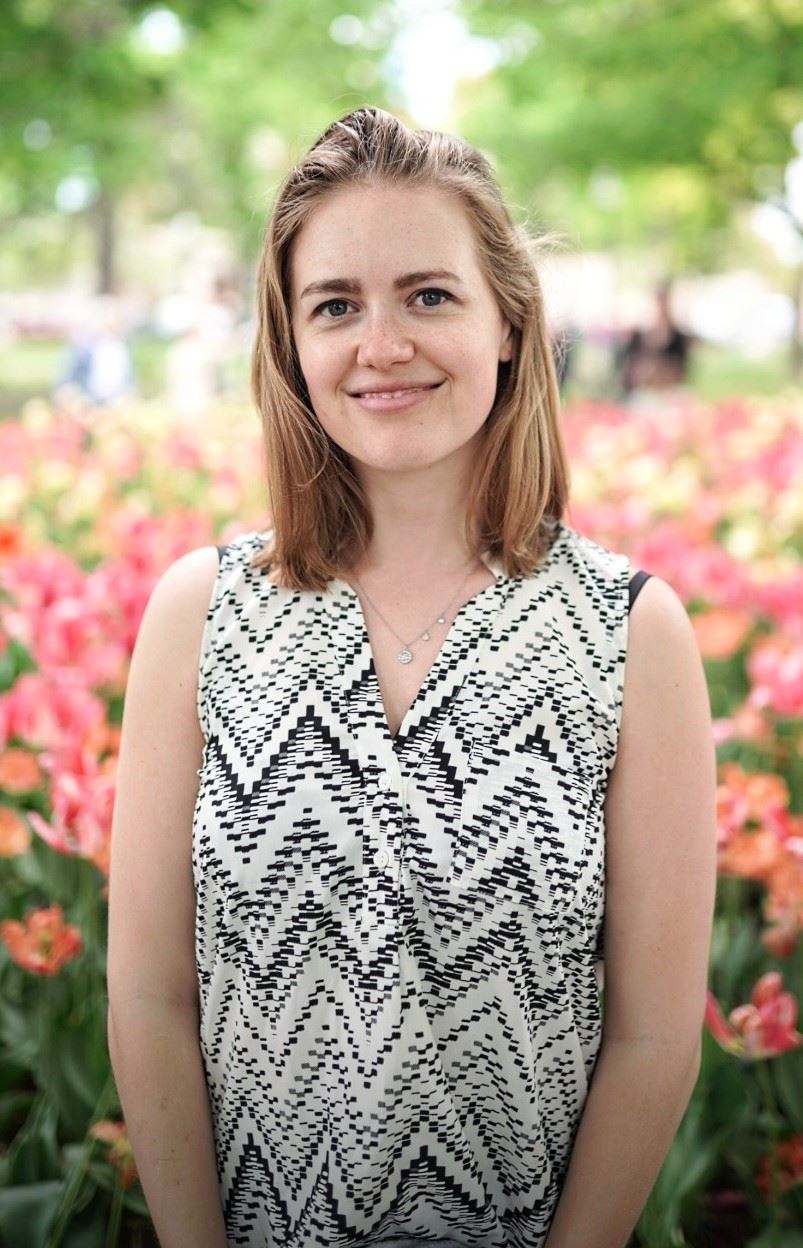 Anna E. Lindner (MA, Media Culture, and Communication, New York University) is a doctoral candidate in the Communication Department at Wayne State University in Detroit, Michigan. A critical/cultural media historian, her dissertation focuses on how mediated discourses represent and are influenced by white supremacy, national/colonial identity, slavery, and resistance enacted by African descendants in mid-nineteenth-century Cuba. Her other research interests include formations of cultural identity, racialized linguistics and education, intersectional feminisms and queer studies, critical whiteness studies, and racial justice activism.
Anna E. Lindner (MA, Media Culture, and Communication, New York University) is a doctoral candidate in the Communication Department at Wayne State University in Detroit, Michigan. A critical/cultural media historian, her dissertation focuses on how mediated discourses represent and are influenced by white supremacy, national/colonial identity, slavery, and resistance enacted by African descendants in mid-nineteenth-century Cuba. Her other research interests include formations of cultural identity, racialized linguistics and education, intersectional feminisms and queer studies, critical whiteness studies, and racial justice activism.
Anna's paper "Race and Social Status: A Content Analysis of the Colonial Cuban Newspaper Gaceta de la Habana, 1849" is the top student paper in the History Division at this year's AEJMC conference.
When and how did you first become involved in AJHA?
In 2019, when I joined the Wayne State doctoral program, I started research with my advisor, Dr. Michael Fuhlhage, who has been an enthusiastic AJHA member for many years. After a year of looking at old Cuban newspapers, I presented our paper on William Walker’s filibustering campaign in Nicaragua at the 2020 AJHA convention, and I was able to meet several smart, supportive scholars who love what they do. In 2021, we presented our paper on representations of the Fugitive Slave Act in Detroit River borderlands newspapers, which won the Snorgrass minorities topic paper award and is currently under review for publication.
How did you become interested in historical research?
As a homeschooler, historical fiction was my favorite genre. This passion was solidified by the excellent history teachers I had in high school, especially when they encouraged civic engagement and framed history as a way to understand and pursue social justice, my other passion.
Tell us about your award-winning paper for AEJMC History Division. What drew you to the topic? How does it fit in with your overall dissertation research?
A history major in college who was involved in racial justice initiatives on campus, I focused on African diasporic and Latin American histories. My advisor, an Afro-Caribbeanist, encouraged me to study enslaved women in nineteenth-century Cuba—that was in 2015, and I’ve been studying African descendants in colonial diaspora ever since! I’m interested in how racial terms are deployed in colonial discourse, resulting in this project: a content analysis of 1849 issues of a Spanish colonial Cuban newspaper, Gaceta de la Habana. The paper feeds directly into my dissertation research on how the discourses of press stories, legal reports, and personal letters written by colonial authorities both construct the racialized “other” and reify institutional power and ideologies.
How does your historical knowledge inform your teaching of non-historical topics?
I constantly (often unconsciously) ground phenomena, observations, examples, etc. in historical events. This impulse to contextualize, buttressed by attention to detail and the importance of making holistic arguments that try to account for as many factors as possible, makes me a better instructor and scholar.
What are some of your interests and hobbies outside of academia?
I’m still trying to determine what “life outside of work” might mean for me because I don’t have good work/life boundaries, but the main non-academic thing I do is exercise—I’m a certified personal trainer on the side and love being outside. Because I’m such an introvert, my attempts to be involved in activism have been more successful since I’ve been able to attend webinars and other events online and volunteer for tasks I can do remotely (and alone). I’m also very passionate about sleep and food, and enjoy music, gaming, and watching movies/TV shows (I only critique them as media objects about half of the time).

